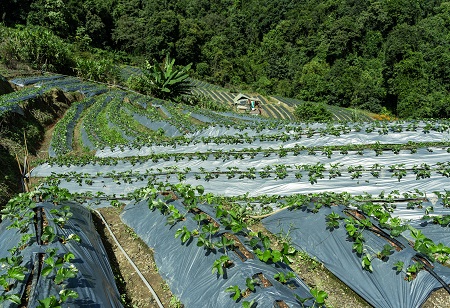
Sustainable agriculture stands as a vital cornerstone for global food security, economic growth, and environmental balance. Within this realm, the impact of water supply and irrigation systems cannot be understated. These systems have emerged as indispensable tools that empower farmers to overcome climatic uncertainties, enhance productivity, and foster long-term agricultural sustainability. This article delves into the multifaceted influence of water supply and irrigation systems on sustainable agriculture, exploring their benefits, challenges, and implications for our planet. In the intricate tapestry of sustainable agriculture, water supply and irrigation systems emerge as threads that interweave productivity, economic growth, and environmental stewardship. These systems embody the power to transform arid landscapes into thriving agricultural hubs, securing food supplies, empowering farmers, and mitigating the impacts of climate change.
At the heart of the matter lies the profound effect of irrigation systems on crop production. Unlike the unpredictability of rainfall-dependent agriculture, irrigation systems offer a dependable water source that allows farmers to optimize plant growth. By granting farmers greater control over moisture levels, these systems create an environment where crops flourish consistently, translating into increased yields. This enhanced production capacity directly addresses food security concerns, as a steady supply of crops contributes to stable food availability even in the face of adverse weather conditions.
One of the notable advantages of irrigation systems is their potential to diversify crop cultivation. Unreliable rainfall patterns often limit farmers to specific crops, risking a lack of dietary variety and economic instability. However, with the controlled water supply that irrigation offers, farmers can experiment with a broader range of crops, fostering dietary diversity and reducing the vulnerability of agricultural livelihoods to market fluctuations.
Traditional rainfed agriculture limits farmers to specific planting seasons dictated by nature. In contrast, irrigation systems unlock the ability to cultivate crops year-round. This flexibility not only maximizes land utilization but also contributes to economic stability. The capacity to harvest multiple times within a year enhances revenue streams for farmers and communities, ultimately fostering rural development and reducing poverty.
Modern irrigation technologies, including drip and precision irrigation, have revolutionized water usage efficiency. These systems deliver water directly to plant roots, minimizing wastage and maximizing absorption. In a world increasingly grappling with water scarcity, such efficient water management becomes a cornerstone of sustainable agricultural practices. By optimizing water use, irrigation systems contribute to both environmental conservation and responsible resource utilization.
The changing climate landscape poses significant challenges to agriculture, with unpredictable rainfall and rising temperatures affecting traditional farming practices. Irrigation systems emerge as powerful allies in mitigating these challenges. By providing a stable water supply and controlled environment, these systems help farmers adapt to shifting climate patterns. As a result, vulnerabilities decrease, and agricultural productivity becomes less susceptible to extreme weather events.
While irrigation systems offer numerous benefits, they also carry environmental implications that demand careful consideration. Large-scale irrigation projects can alter natural water flow patterns and disrupt local ecosystems. Striking a balance between increased agricultural output and environmental sustainability requires strategic planning and management. Responsible implementation of irrigation systems is crucial to prevent soil erosion, waterlogging, and the depletion of groundwater resources. Implementing proper irrigation systems is essential to avoid the negative consequences associated with them. For instance, soil erosion can occur when water is not distributed evenly, leading to valuable topsoil being washed away. Waterlogging, on the other hand, can result from excessive irrigation, causing water to accumulate in the soil and suffocate plant roots. Lastly, the overuse of groundwater resources can lead to their depletion, affecting not only agriculture but also the availability of drinking water for communities. Therefore, it is imperative to carefully manage and monitor irrigation systems to ensure sustainable agricultural practices while minimizing their environmental impact.
Ensuring equitable access to water from irrigation systems is a pivotal aspect of promoting sustainable agriculture. Regardless of the scale of their operations, all farmers should have fair and reliable access to water resources. This not only fosters social equity but also minimizes potential conflicts over water rights. By promoting fair access, irrigation systems contribute to harmonious rural development and community well-being.
As we venture into an era where population growth and climate uncertainties strain traditional farming methods, embracing the potential of water supply and irrigation systems becomes imperative. By harnessing technology, adopting best practices, and fostering equitable access, we pave the way for a more resilient, food-secure, and sustainable future for all
We use cookies to ensure you get the best experience on our website. Read more...